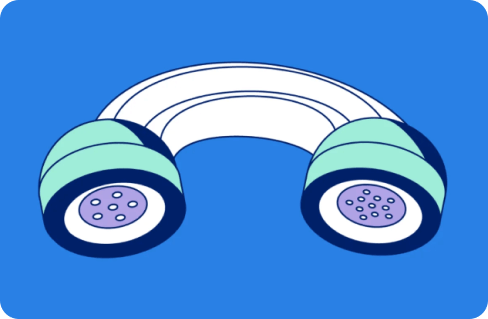Hello again, and welcome back to your favorite recurring segment on the CallRail blog, News You Can Use.
Once or twice a month, we review the latest news in marketing and technology and summarize the most important headlines for you. Staying informed doesn’t just make you a good citizen — it’s good for business.
So, without further ado, here’s some news that you most certainly can use:
1) Facebook Marketplace expands into home services listings (Facebook Newsroom)
On May 23, Facebook expanded its ‘Marketplace’ listings to include home services providers. In addition to individual sellers and local businesses, consumers will now be able to view home services providers in their area, along with reviews, locations, and credentials.
“More people ask for recommendations related to home services on Facebook in the US than any other topic,” says Deb Liu, vice president of Facebook’s Marketplace. “Since the beginning of the year, millions of people have asked their friends for suggestions related to home services, such as house cleaners, plumbers and contractors.”
As part of the rollout, Facebook has partnered with Handy, HomeAdvisor and Porch to show relevant home services listings for your area. The new Marketplace will be phased in for all of Facebook’s users over the coming weeks.
Home Services are a hot industry, with total revenues estimated at over $600 billion in 2017 alone. For marketers, the growth and resiliency of the industry is as close a thing to a sure bet as you could ask for.
2) Washington & Beijing finalize deal to save embattled Chinese telecom ZTE (Washington Post)
Fears of a trade war between the US and China have subsided somewhat with the news that the Trump administration is finalizing a deal to waive penalties on ZTE, a major Chinese phone and software manufacturer.
The US has imposed harsh sanctions on doing business with ZTE over allegations that the company had violated international export law. Under these new restrictions, the US Department of Commerce forbade American companies from selling telephone parts to ZTE, a move that nearly crippled the telecom giant in the space of just a few months.
But now, in an apparent about-face, the Trump administration is closing in on a deal to exempt ZTE from the sanctions and allow it to resume trade with American manufacturers. Though the deal is still in its early stages, the move marks a de-escalation to Trump’s burgeoning trade war with China, in exchange for key concessions from Beijing.
The final details of the deal have yet to be hammered out, but in the meantime, international marketers and businesses can breathe a little easier. Now that a trade war seems to be fading from the horizon, investment in the booming Chinese market is looking like a much better proposition.
3) US Senate votes to restore Net Neutrality (USA Today)
In a surprise vote, the US Senate passed a bipartisan resolution to reverse the recent repeal of ‘Net Neutrality’ rules.
The measure is largely a symbolic gesture, since the bill would need be passed by the House of Representatives and then signed by the US President in order for it to pass into law — events that almost certainly will not take place under the current administration.
That said, supporters of the bill see it as a key victory in raising awareness around the importance of Net Neutrality. Campaigners for the restoration of Net Neutrality hope that by passing this resolution the issue will remain on the public radar through the midterm elections this fall, after which the House may be more amenable to passing bipartisan legislation.
The FCC’s effort to halt Net Neutrality also is facing a legal challenge in some states, with attorneys general in 23 different states filing lawsuits to stop the repeal of the rules.
Read more: The end of Net Neutrality could have a big impact on your bottom line.
Digital marketers and online businesses should continue to pay careful attention to this case.
4) Trouble for Tesla as Elon Musk goes off-script (CNBC)
After a nearly unbroken string of positive coverage and hype for the consumer release of Tesla’s electric car, the company has stumbled into a storm of PR trouble.
First, Tesla CEO and founder Elon Musk went off-script during a call with investors, where he berated them for asking “boring and boneheaded” questions about finance and logistics. Then, more bad news: Tesla missed its (already revised) production targets for the Model 3, causing the stock’s value to plunge by more than 20 percent.
And then, last week, came the hammerblow: Consumer Reports declined to recommend the Tesla Model 3 sedan after it found the car had the longest stopping distance of any model car tested this year. “Despite record range and agile handling, issues with braking, controls, and ride quality hurt the Model 3’s overall score,” Patrick Olsen said in his writeup for Consumer Reports.
Yet amidst this mounting negative publicity, Musk has doubled down on the unconventional communication that made him famous in the first place. In a company-wide statement to Tesla, Musk referred to research by the private equity firm Baird, which said the media landscape has become saturated with “increasingly immaterial” negative reports about Tesla. According to Baird’s report, Tesla’s stock value should regain its lost ground and continue to climb, as long as the company meets its next production targets.
And indeed, Tesla’s stock price has already clawed back much of the ground it lost following its low in April.
Tesla is a test case about whether an unconventional management and PR can beat out the experts’ predictions — something that should be both entertaining and informative for any business owner.
5) Apple awarded $539 million in Samsung patent retrial (Reuters)
Following five days of jury deliberations, a US court has ruled that Samsung Electronics must pay Apple $539 million in damages for copying patented smartphone features. The verdict marks the beginning of the end of a years-long feud between the two technology firms.
Apple and Samsung, the top two smartphone manufacturers in the world, have been locking horns in court since 2011. At the time, Apple filed a lawsuit alleging that Samsung’s phones and tablets had copied the design of Apple’s flagship iPhone and iPad.
The court ruled in 2012 that Samsung was indeed liable for infringing Apple’s patents and copyrights, but a lack of consensus over the total cost of damages led to the current retrial. Samsung had previously paid Apple around $399 million over a prior patent infringement case, and the newest verdict would add an additional $140 million in fines on top of that.
However, this case is far from finished — Samsung is expected to appeal before the US Court of Appeals, which could see the case continued for several years. Investors will want to wait for the full verdict before plunking down a lot of money in investment or financing for either company.
But more importantly, this battle for supremacy among the world’s biggest smartphone manufacturers is a sign of things to come: Both companies recognize that mobile is the future, and both are working to capture as much mobile market share as they can. Marketers and businesses would be wise to follow their example.











